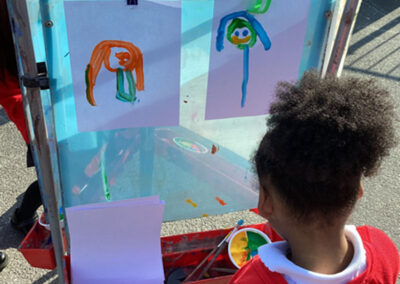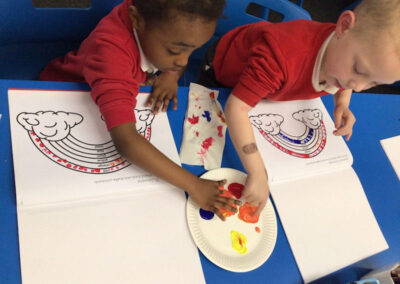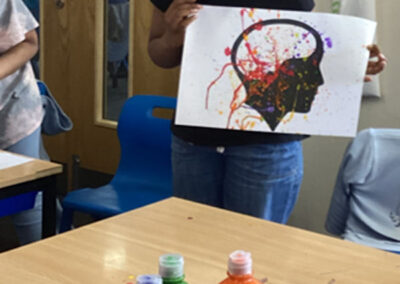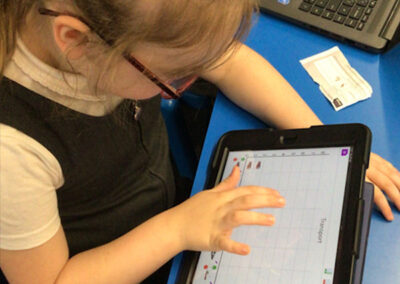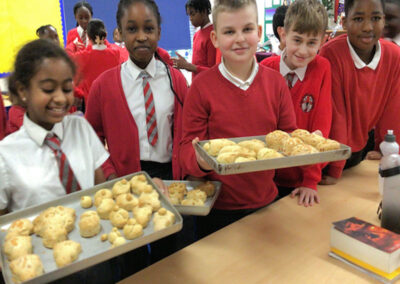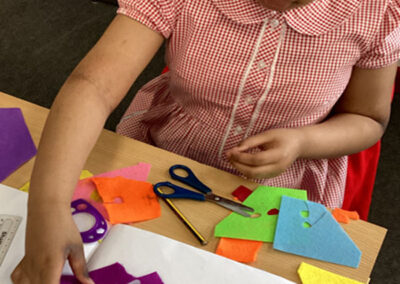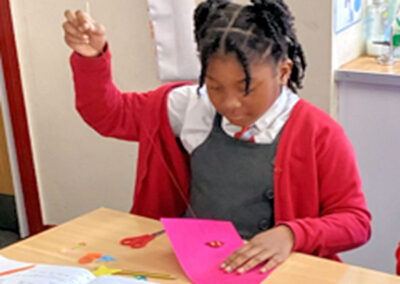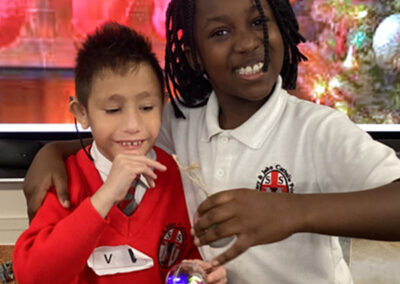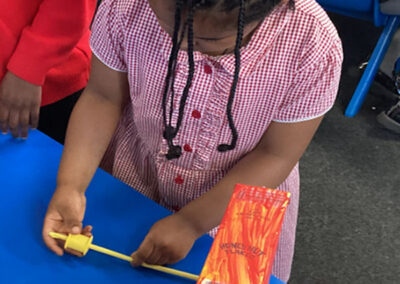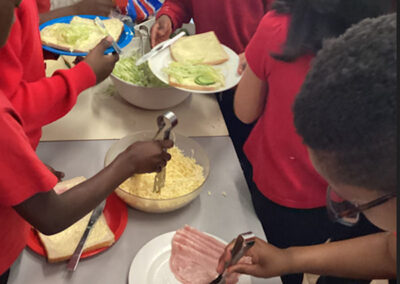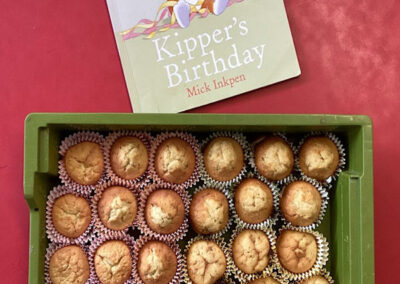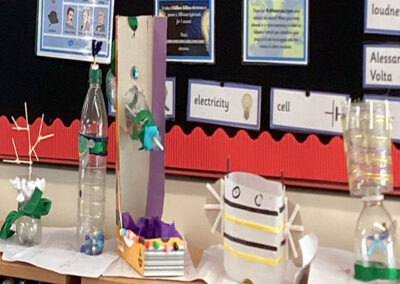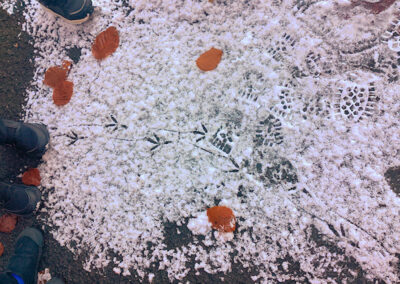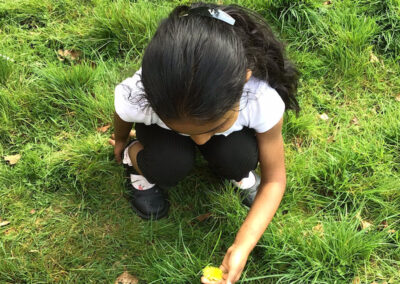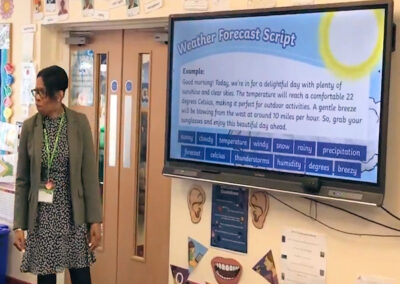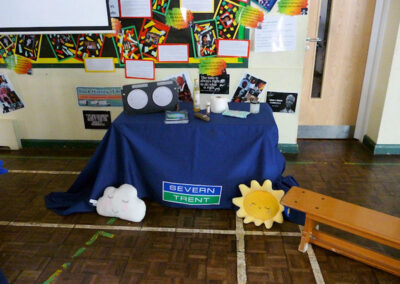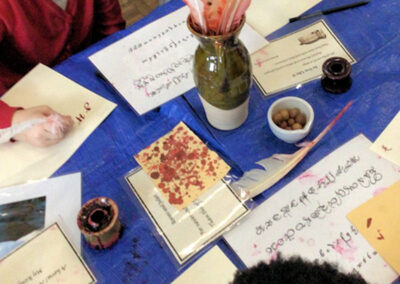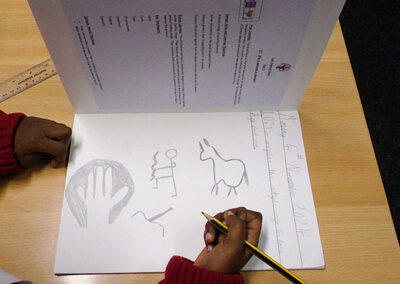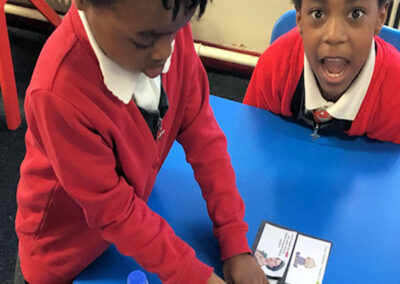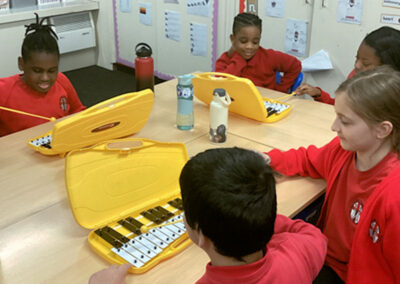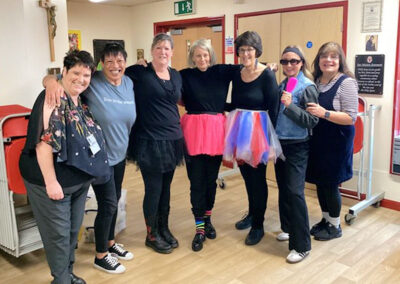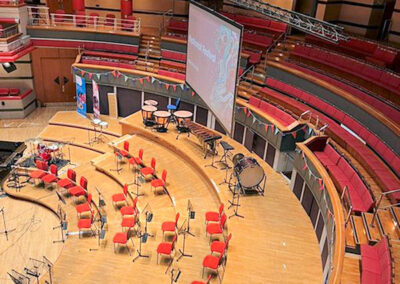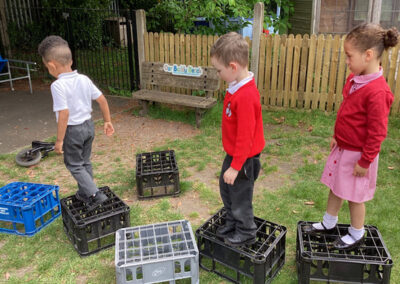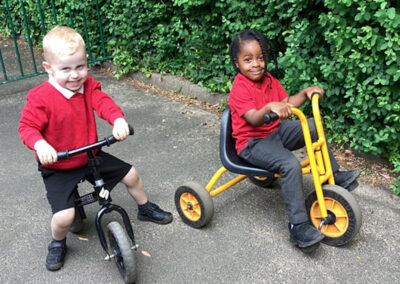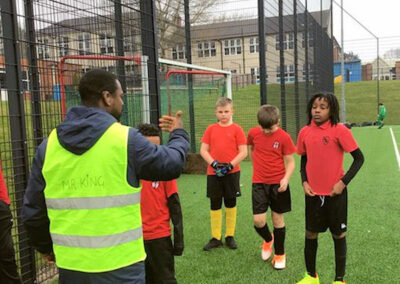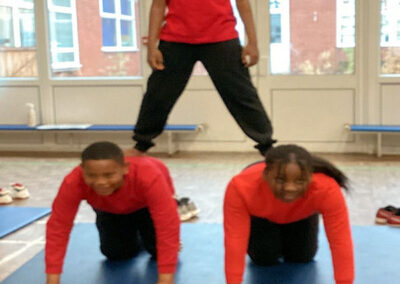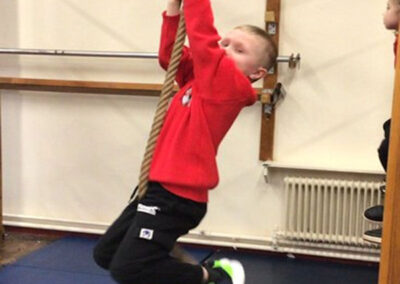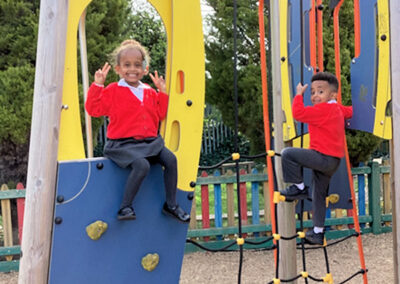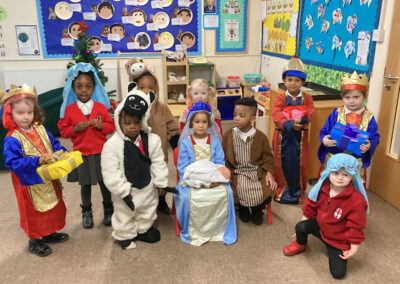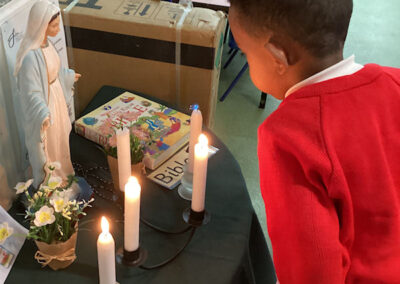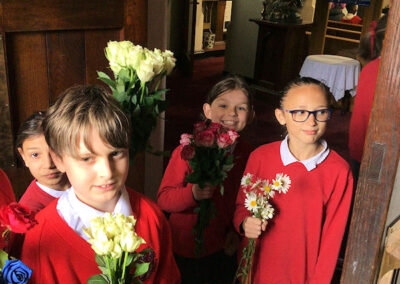Subject Information
Find out more about our teaching of each individual subject below.
English
At Ss. Mary and John, we are proud to follow the English National Curriculum while providing a rich, book-based writing curriculum that places high-quality literature at the heart of learning. From Early Years through to Year 6, our approach ensures that reading and writing are meaningfully connected and support one another.
Mathematics
Our aim is to equip all pupils with the skills and confidence to solve a range of problems through fluency with numbers and mathematical reasoning. Children are encouraged to see the Mathematics that surrounds them every day and enjoy developing vital life skills in this subject.
The three aims of the National Curriculum (Fluency, Reasoning and Problem Solving) are addressed every day within our Maths lessons through anchor tasks, learning, guided practice, independent tasks and challenges.
At Ss. Mary and John Catholic Primary School, we are on the sustaining phase of the teaching maths for mastery approach. This approach helps our pupils develop a deep and secure knowledge and understanding of Mathematics.
Our curriculum drivers of being curious, being resilient, being faithful and understanding the possibilities are used with our daily lessons. We challenge our children during Maths lessons in order to deepen their curiosity, stretch their mathematical thinking and support them believing in themselves so they can build their resilience to learning.
What do our Mastery Maths Lessons include?
- Anchor task – at the start of each lesson, all children are encouraged to explore a problem themselves to see what they already know.
- CPA approach – The use of concrete resources, pictorial representations and recording of abstract number sentences takes place within a block of learning.
- Stem sentences and correct use of vocabulary – teachers plan effective stem sentences that will aid the children’s thinking and learning. They model the correct use of mathematical vocabulary, relevant to their year group, encouraging the children to use this language in their discussions and written work.
- Reasoning and deep understanding – pupils are given the opportunity to think deeply about the Maths, make connections and logically explain their thinking by drawing upon what they already know. We display reasoning cards on our working walls to support our children with verbal and written reasoning responses.
- Questions to challenge thinking – teachers use questioning throughout every lesson to check understanding. Challenging questions will be asked to stretch the children’s knowledge such as: How do you know? Can you prove it? Can you explain it? Can you represent it in a different way?
- Discussion – pupils have the opportunities to talk to their peers to discuss their learning and explain their thinking.
- Catch Up – catch up is planned by class teachers. In mathematics new learning is built upon previous understanding, so in order for learning to progress pupils need to be supported and areas of difficulty must be dealt with as and when they occur.
Marking in Maths
Our current marking policy states that staff use live marking in Mathematics. Independent tasks are completed and marked throughout the lesson as we believe that the most valuable feedback is given during a lesson.
Where verbal feedback has been given to a pupil, such as number formation, incorrect place value or an error with a calculation, a note of the feedback will be made in their book with the letters V.F.
Close The Gap tasks are set when teachers feel there are gaps in learning that need to be addressed and pupils will complete these questions prior to the next lesson.
Science
Science at our school is a vibrant and essential part of the curriculum, where curiosity is celebrated and every child is encouraged to think like a scientist. We believe that science should be exciting, meaningful, and rooted in real-world experiences. Through a rich variety of hands-on activities, experiments, investigations, and outdoor learning opportunities, children develop essential skills such as observation, prediction, questioning, and problem-solving.
Our science teaching is designed to inspire a lifelong interest in the natural world and how things work. Pupils explore a wide range of topics—from plants and animals to materials, forces, light, and space—all linked to everyday experiences and broader environmental and global issues. We foster scientific thinking by encouraging children to work collaboratively, record their findings, and draw thoughtful conclusions.
By making learning active and engaging, we aim to build pupils’ confidence and understanding of scientific concepts. Whether they are growing plants in the garden, testing materials in the classroom, or observing changes in the weather, our students are developing the skills and enthusiasm that will prepare them for future learning—and help them become the curious, creative, and informed citizens of tomorrow.
Art
At our school, we follow the Grammarsaurus Art Curriculum, which promotes creativity, self-expression, and technical skill development through a structured, skills-based approach. Our curriculum is designed to progressively build pupils’ confidence and competence in using a range of media and artistic techniques, while nurturing a deep appreciation for art and design.
Computing
At our school, we believe that computing is a vital life skill that prepares pupils for the ever-changing digital world. We follow the Purple Mash 2Simple Computing Curriculum, ensuring a structured, engaging and progressive approach to computing from Reception through to Year 6.
Each year group takes part in a dedicated weekly computing lesson, helping pupils develop confidence in digital literacy, computer science, and information technology.
Design and Technology
Our Design and Technology (D&T) curriculum is a progressive, skills-based programme that encourages creativity, problem-solving, and innovation in all pupils. Rooted in the National Curriculum, it equips children with the practical expertise and design thinking needed to thrive in an increasingly technological world.
Geography
Our Geography curriculum, developed using the Grammarsaurus Skills Progression Framework, is designed to inspire curiosity about the world and equip pupils with the knowledge and skills to understand diverse environments, cultures, and processes. The curriculum is structured to build progressively from the Early Years through Key Stage 2.
History
Our History curriculum, developed using the Grammarsaurus Skills Progression Framework, ensures we follow a comprehensive and engaging programme of study which is designed to build a coherent understanding of the past from Early Years to Key Stage 2.
Music
At our school, music is a joyful, inclusive, and vital part of school life. We follow the Charanga Musical School Scheme, a high-quality, digital music curriculum aligned with the National Curriculum for Music. Music is taught weekly in all year groups from Key Stage 1 to Key Stage 2, with plenty of additional opportunities for children to perform, sing, and explore musical creativity throughout the year.
Physical Education (PE)
At our school, Physical Education (PE) is a vital part of every child’s development. Following the National Curriculum for PE, we aim to instil a lifelong love of movement, sport, and healthy living. Our bespoke Long-Term PE Plan ensures a broad, balanced, and progressive curriculum across all year groups. Pupils engage in two hours of high-quality PE a week, as well as regular activity to ensure their 30 daily active minutes.
Religious Education (RE)
RE fulfils the requirements of the Religious Education Curriculum Directory as published by the Bishops of England and Wales. The RE curriculum at SS Mary and John’s follows the Diocesan approved scheme People of God, and doctrine is taught in accordance with the teachings of the Catholic Church. The school aims for the Christian growth of its children in their own faith and in their awareness of the world around them.
Respect for other faiths and cultures is part of our mission and the teaching of other cultures and religions is an important part of our programme within the context of the requirements of the Curriculum Directory. Pupils will be taught about the integrity of other faiths and not as comparative religion. Pupils will learn about the beliefs, expression and celebration, living and belonging, of the principal religions in Great Britain.
We celebrate a Mass in church which is led by pupils in each class. We have daily prayers throughout the school day and on Mondays, we begin the week with a Headteacher Gospel Assembly, which allows pupils to listen to the Gospel, reflect and take forward a message for the week ahead. Liturgy assemblies are central to our worship and our pupils and Catholic Life Leaders take an active role in leading and preparing liturgies and prayer opportunities.
As a school we are working with our parish to develop the spiritual life of pupils and their families. Family masses take place across the year; these include the sacramental masses.
Faith is one of the fundamental pillars of our school community. Everybody who attends SS Mary and John’s is a member of our faith community and is therefore fully included in our Catholic Life, Religious Education and faith development.
As part of our faith journey, we also learn about lots of the other important cultures and faiths which make up our school, community and society. Therefore, we hold regular trips, events and assemblies where we explore in detail the aspects of different faiths and cultures which help shape our world and our school community.
To view what we are learning in RE, please see our year group Curriculum overview sheets.
RSE
From the academic year 2020/21, Relationships Education and Health Education has become statutory in all primary schools in England. This new subject will build on the non-statutory lessons we have previously taught in RSE.
As a Catholic school, our mission is to support the spiritual, moral, social and cultural development of all of our pupils, rooted in the wisdom and teaching of the church.
The education of children in human sexuality is an important, precious and privileged responsibility. The church teaches us that this is very much a partnership with parents, in which parents are the ‘first educators’ of their children on these matters; ultimately, you confer on us the right to co-educate your children with you.
At SS Mary and John’s we teach this curriculum using Life to the Full by Ten:Ten Resources. Ten:Ten is an award-winning Catholic educational organisation that is well-respected and very experienced in this field of work.
Life to the Full has been approved by our diocese. Furthermore, Ten:Ten have entered into a partnership with the Catholic Education Service and the Department for Education to provide training for teachers in Catholic schools on the subject of the new statutory curriculum. Therefore, we are confident that this programme is a very good fit for our school.
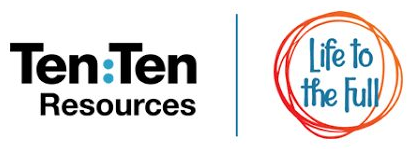
Through their programme, Ten:Ten understand the foundational role that parents have in educating and nurturing their children on these matters. Within the programme, they have built in resources which will not only keep you informed about what is being taught in school, but will also give you the opportunity to engage your children in discussion, activity and prayer.
Ten:Ten also provide an Online Parent Portal
This is a simple-to-follow resource, for parents which:
- Outlines the statutory changes that will take place.
- Articulates a vision for Catholic Relationships and Health Education.
- Explains how Life to the Full aims to help us fulfil the statutory curriculum with a Catholic ethos.
- Provides some information about key decisions we need to make, in consultation with parents.
- Answers some Frequently Asked Questions.
- Will be a tool we can use throughout the year to keep you informed and updated about the work we are doing in school.
Spanish
At our school, all Key Stage 2 pupils (Years 3–6) receive a weekly Spanish lesson, using the fully compliant and structured Language Angels scheme of work. This engaging, progressive programme supports pupils in developing skills in listening, speaking, reading, and writing in Spanish. It aligns with the National Curriculum for Languages and enables all children to make sustained progress.


